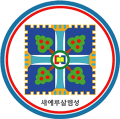Crisis in South Korea’s Democracy
On January 23, the Alliance for Democracy and Religious Freedom convened an emergency press conference outside Cheong Wa Dae, the presidential office in central Seoul, formally announcing its establishment. The coalition includes civic and religious organizations from across South Korea and approximately 100 participants, including Buddhist, Christian, and Muslim leaders, legal professionals, university professors, and civil society advocates.





















